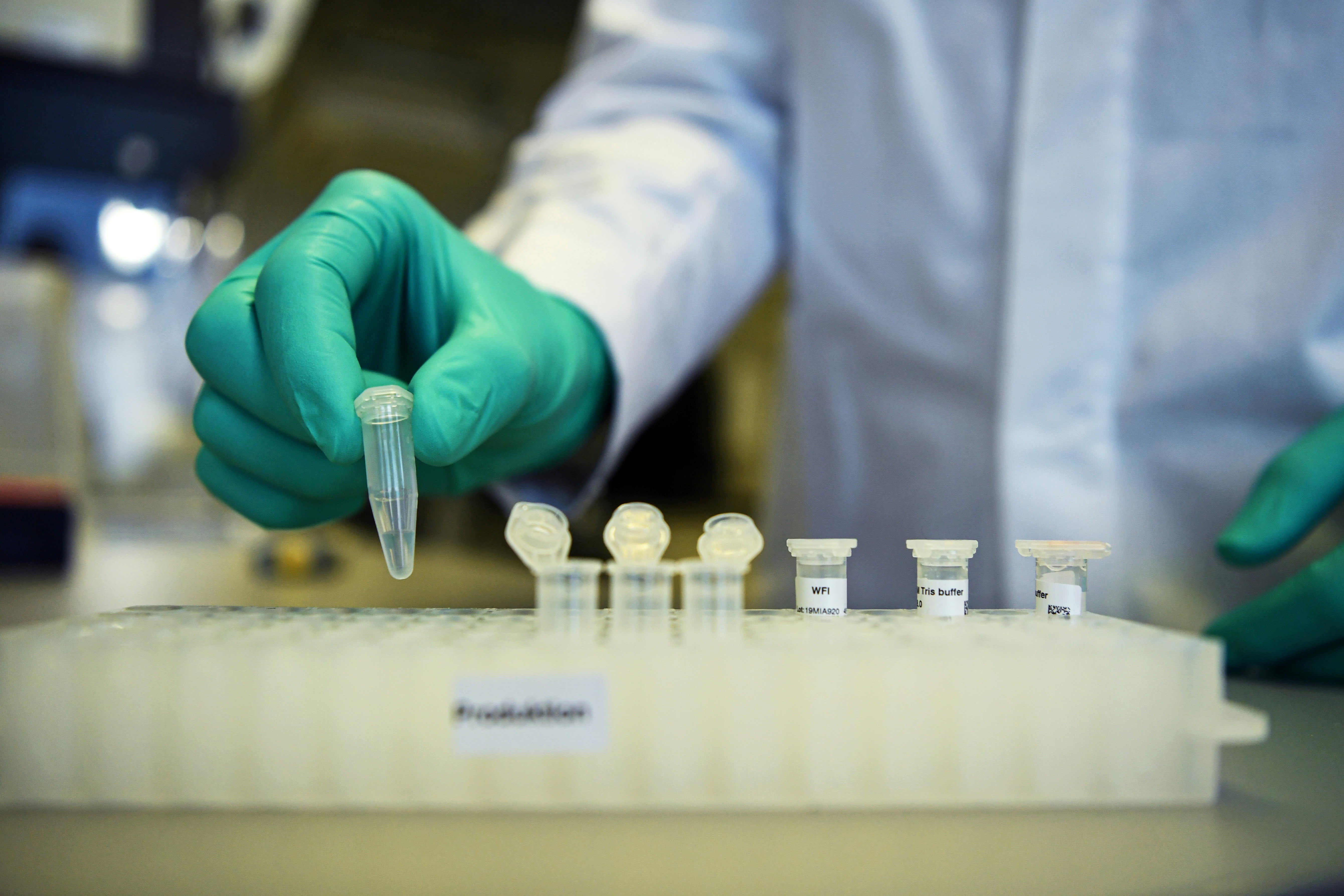
An employee of German biopharmaceutical company CureVac, demonstrates research on a vaccine for the coronavirus (COVID-19) disease at a laboratory in Tuebingen, Germany, March 12, 2020.
Andreas Gebert | REUTERS
CureVac plans to continue work on its Covid-19 vaccine despite disappointing clinical trial results that showed the shot is just 48% effective.
The German biotech firm published its final analysis of the clinical trials of its coronavirus vaccine — known as CVnCoV — on Wednesday, confirming that the shot was 48% effective against Covid of any severity across all age groups and 15 variants.
Pierre Kemula, CFO of CureVac, defended the vaccine on CNBC Thursday, however, saying the clinical trials had been conducted at a time when multiple new strains of the virus were spreading across the world.
“We need now to speak to the EMA [European Medicines Agency] and want to make sure we have an open dialogue and share all the data we have to assess the path forward,” he told CNBC’s Squawk Box Europe Thursday.
When asked whether it was worth continuing to develop the vaccine when there are other successful shots already deployed in Europe and elsewhere, Kemula said the company had contractual obligations to fulfil.
“We have a contract with the European Commission to supply 225 million doses of the drug so I think, with that in mind, we need to plow forward,” he said.
“There’s plenty of jabs to be given, there’s plenty of people under the age of 60 that haven’t had access to the vaccine to date. So if we can contribute to fight — in the short-term in the pandemic, but also in the mid-term with these other avenues of [multivalents] … that’s something we continue to work on.” Multivalent or polyvalent vaccines are designed to immunize against more than one strain of a virus.
The results of the CureVac trial, which involved 40,000 participants in ten countries in Latin America and Europe, showed the vaccine was more effective in younger participants. The efficacy rate among those aged 18 to 60 came in at 53% against disease of any severity, and rose to 77% against moderate and severe disease in the same age group.
However, as Covid-19 poses more risks for older people, the trial results are disappointing, not least because two other vaccines made using messenger RNA (mRNA) — those from Pfizer-BioNTech and Moderna — have proved to be over 90% effective at preventing Covid-19 infection. Shares in CureVac dropped as much as 10% in extended trading following the trial results.
CureVac CEO Dr Franz-Werner Haas also defended the results in a statement Wednesday, saying the vaccine “demonstrates a strong public health value” for those between 18 and 60 and will be an “important contribution to help manage the Covid-19 pandemic and the dynamic variant spread.”
He also cited “the current context of an increasingly diverse environment of Covid-19 variants.”
Multiple variants having emerged over the course of the pandemic, with some more virulent than others — such as the alpha variant first discovered in the U.K. and the delta variant first identified in India — and Kemula said he believed mutations would continue to occur.
“With more and more people infected with coronavirus, we are set for a continued evolution of the disease as it moves forward and has more and more variants,” Kemula said. The industry needed to think ahead on “how we can better manage this with current vaccines but also with different boosters (booster shots) potentially,” he added.
